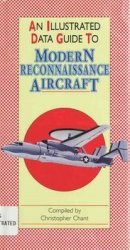At midnight on December 20, 1989, U. S. troops invaded and occupied Panama. The invasion, titled “Operation Just Cause,” was triggered by a series of events that culminated in the shooting of an American soldier.
General Omar Torrijos Herrera ruled Panama for 13 years before he died in an airplane crash in 1981. Following his death, Panama underwent a series of crises, as three groups vied for political ascendancy. General Manuel Antonio Noriega successfully consolidated his power in 1984 in the National Guard, renaming it the Panama Defense Forces (PDF). Political reforms in 1983 called for a president, two vice presidents, and a National Assembly to be elected for five-year terms beginning in 1984. Noriega tampered with the election results, and the U. S.-backed candidate, Nicolas Ardito Barletta, won. After attempting to launch an investigation into Noriega’s PDF, President Barletta was forced from office by Noriega. First Vice President Eric Arturo del Valle, regarded as a Noriega front, became president in 1985. General Noriega was reputed to be deeply involved in the corruption plaguing Panama. By 1986 the Panamanian economy had soured and underemployment and unemployment rates soared past 45 percent. In 1987 the Civil Crusade—an alliance of professionals, businesspeople, and opposition parties— demanded that del Valle and Noriega resign. The movement was endorsed by the Roman Catholic Church and had sympathizers in Washington, D. C. In response to the Civil Crusade, Noriega suspended opposition newspapers, declared a state of emergency, and sent troops into the streets, ostensibly to keep order. In response, the United States suspended economic and military aid to Panama and closed its embassy.
President del Valle discharged Noriega as PDF commander in 1988. Noriega, however, refused to leave his post, and the National Assembly instead voted to remove del Valle. Ronald W. Reagan’s administration condemned this action, and the United States imposed an embargo in an attempt to oust Noriega from power. Presidential elections were held in May 1989. Noriega nullified the results when it was determined that opposition leader Guillermo Endara Galimany was winning a majority of votes, and instead installed a figurehead president. In response, the United States suspended Panama Canal payments, tightened the economic sanctions, and intensified U. S. military strength in the Canal Zone to 12,000 troops.
In early October 1989 middle-ranking officers backed by the United States attempted a coup against Noriega and failed. On December 15, 1989, the Panamanian legislature declared Noriega president and stated that the United States and Panama were in a state of war. The shooting of a U. S. Marine caused Reagan’s successor, President George H. W. BuSH, to take action, and on December 20, 1989, more than 25,000 troops were dispatched to eliminate the Noriega regime.
“Operation Just Cause” was controversial, due to the resulting loss of hundreds of Panamanian lives and the subsequent damage to both Panama City and El Chorillo. The military was able to quickly achieve its objective as Noriega surrendered on January 3, 1990. U. S. officials supervised the swearing in of President Endara and Vice Presidents Ricardo Arias Calderon and Billy Ford. Noriega was captured and extradited to Miami, tried and convicted for narcotics trafficking, and sentenced to a 40-year prison stay.
Officially, 23 Americans were killed during the conflict. Estimates of Panamanian deaths ranged from a low of 557 to several thousand (from the U. S. Southern Command) to between 2,000 and 4,000 (from the Association of Relatives of the Fallen of Over 6,000). The economic destruction of the invasion caused more than $2 billion in losses, of which the United States has paid $1 billion in aid. The invasion has left a strong undercurrent of anti-American sentiment in Panama.
Further reading: James Cockcroft, Latin America—History, Politics, and U. S. Policy, (Chicago: Nelson Hall,

General Manuel Noriega walks to his seat aboard a U. S. Air Force aircraft, escorted by agents from the Drug Enforcement Agency (DEA). The former Panamanian leader was flown to the United States, where he was held for trial on drug charges.
1996); Thomas Skidmore and H. Wayne Smith, Modern Latin America (New York: Oxford University Press, 1997).
—Michele Rutledge




 World History
World History









